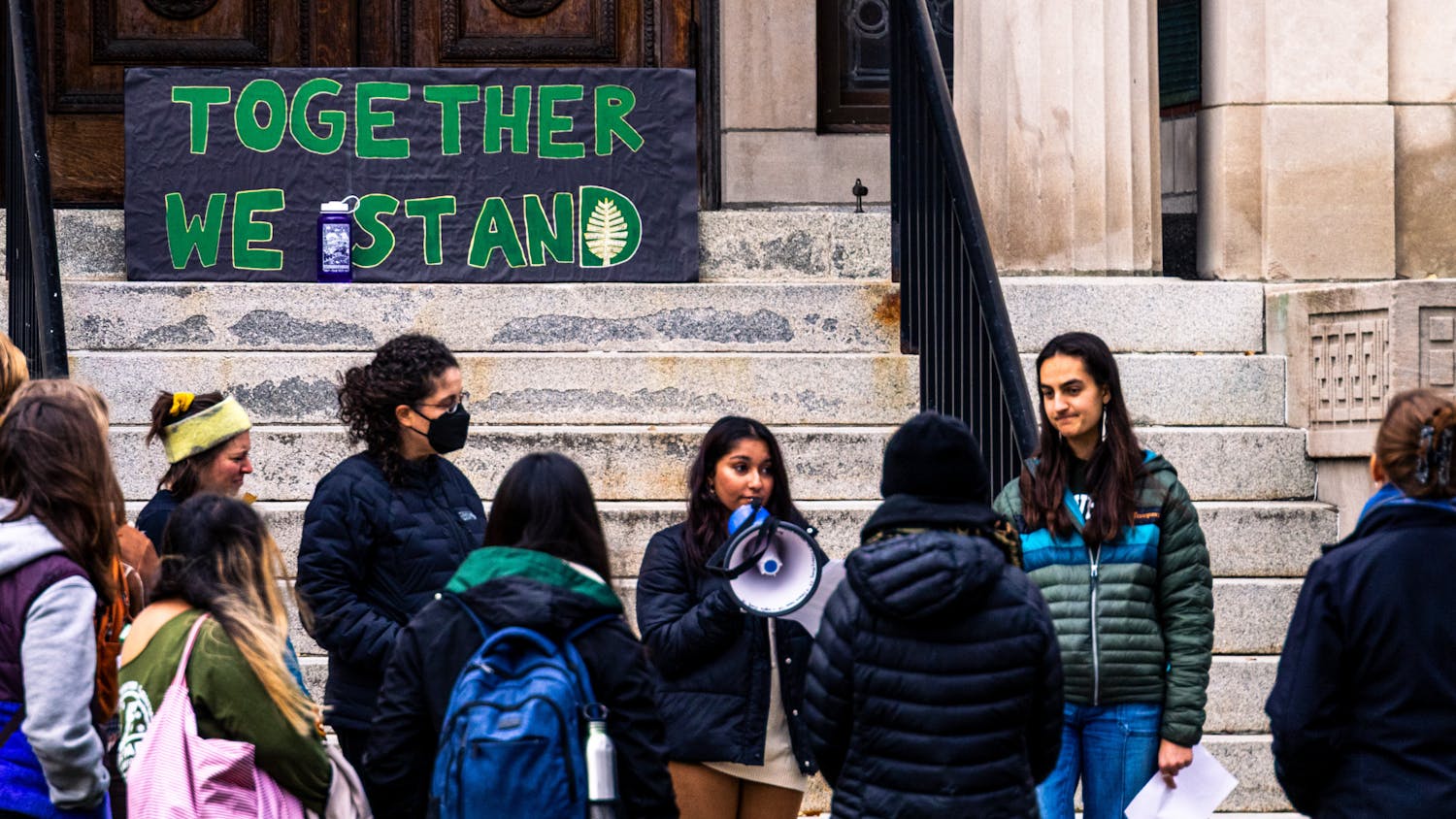Kim and Damian Rosa, originally from New York City but now residents of the Upper Valley, told approximately 30 students how their drug use and HIV have shaped their lives last night in 28 Silsby.
Kim Rosa, who was diagnosed with the HIV virus in 1990, described growing up with parents who were both alcoholics and a mother who was abusive.
She began to acquire what she called "bad habits," such as smoking marijuana, taking pills, drinking and cutting school.
After her father threw her out because of her drug habit, she held jobs at a bank and a deli restaurant, where one evening a customer asked her out for a drink. She later discovered this man, who became her husband, was a heroin dealer.
Out of curiosity, she said, she tried the drugs and became addicted. Her substance abuse was so severe, she said, she did not care about her son, her husband or herself.
"I had nothing," she said, "I would make promises to my son and would break every one of them."
At this time, Kim Rosa said, she became an intravenous heroin and cocaine user. Following a failed suicide attempt, she said, she spent time with her brother and aunt and made an effort to become sober and took an AIDS test.
"I thought 'this cannot happen to me now, I've got my life back together,'" she said.
She said when she learned the test results were positive, her first fear was that she had infected her child. Her son, however, does not have the HIV virus.
She then moved to Manchester, she said, where she met a cocaine dealer and became pregnant. She began abusing drugs again, and said the drugs' affected her body so much she was not aware of her pregnancy.
After a troubled pregnancy, Kim Rosa gave birth to a daughter. She said she was dedicated both to giving her daughter, who was sick from birth, a good life and to educating people about AIDS. Her daughter died at the age of three years and three months.
"I want to go places in my life," she said. "I've taken enough from the community, now I want to give something back." She then introduced Damian Rosa, her husband of four years.
He explained he also came from a dysfunctional family. After his father died when he was 12, he said, he began drinking. Marijuana and cocaine use soon followed, until his mother threw him out of the house when he was 14.
"From the age of 14 to 18 I slept under cars, in hallways, behind buildings, wherever I could sleep, " he said.
He said he began dealing drugs, smoking and drinking.
Shocked by his appearance in the mirror one day, he said, he went to a detoxification center, where he declined rehabilitation treatment.
After becoming more focused for a time, he said, he relapsed and even began sharing needles for drug injections.
"That's how blind drugs had me," he said.
He went back to the rehabilitation center and in 1991 and tested positive for HIV.
Damian Rosa said he reacted violently to his HIV diagnosis, but later realized he had been given a new chance.
"I was killing myself anyway with my addictions. I would probably be dead somewhere," he said.
He said he is grateful to be alive, and to see things they way they are, without the influence of drugs.
Since he was diagnosed with HIV, he said, he has been sober, has worked with high-risk runaway children and has not relapsed.
Asked about the physical effects of the HIV virus, Kim Rosa said it has made her thin and more prone to frequent infections. She also said she and her husband need more sleep, which prevents them from "being normal parents" to their son, now 11.
Both say they feel good despite frequent illnesses.
They said they try to educate others and raise awareness about HIV by handing out condoms and bleach to clean syringes, or providing information about free AIDS testing.
Everyone who knows them, they said, knows they are HIV positive. They said they generally have not encountered hostility.
The Rosas' speech was organized by AIDS Workcrew and sponsored by the Nathan Smith Premedical Society.



